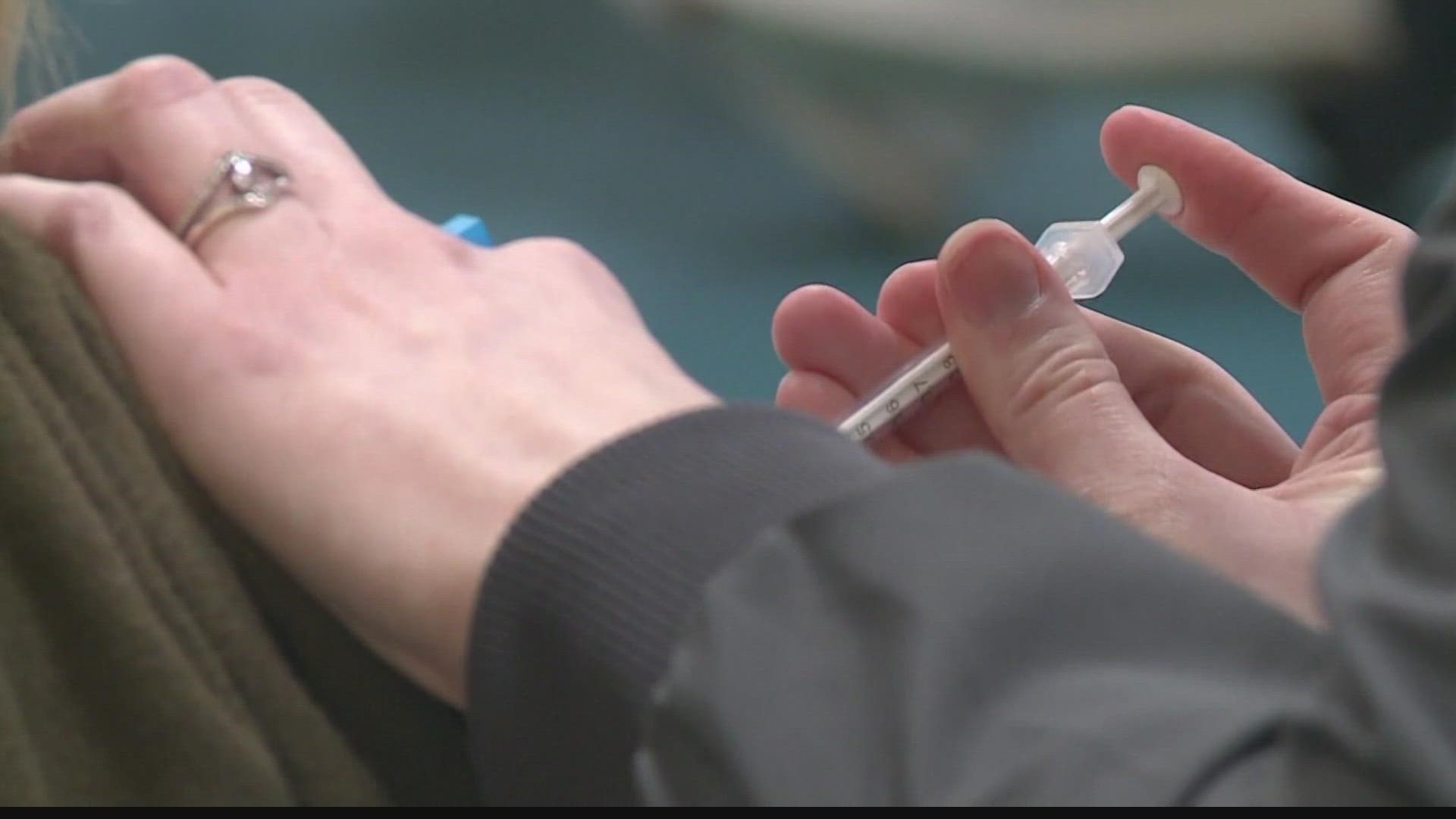INDIANAPOLIS — As federal COVID-19 relief dollars dwindle, Hoosiers are starting to feel the impact.
This week, the federal program helping uninsured Americans will no longer accept claims for COVID-19 vaccines starting April 5. Last week, the Health Resources and Services Administration also stopped processing claims for tests and treatments.
Currently, there is an estimated 31 million uninsured Americans.
“We are going to see things go from really bad to worse, unfortunately,” said Rev. David Greene Sr., a senior pastor at Purpose of Life Ministries and president of Concerned Clergy of Indianapolis.
Throughout the pandemic, Greene has helped organize COVID-19 vaccine clinics to help fight misinformation in his community.
He said this new hurdle will only increase health disparities, especially among African Americans and Hispanics, who are statistically uninsured at higher rates.
“Now we are getting ready to provide a layer of complexity, a layer of difficulty and they wonder why we have disparity issues in terms of health care here in our state and in our county,” Greene said.
He said this change in funding during a time of inflation will leave many with a difficult choice when it comes to their health.
“You are wanting them to spend dollars. They are not going to do that. Even for the tests, let alone the vaccination. So, that’s going to create additional issues,” Greene said.
The White House said the lack of funding could have an impact on even more people, especially if the country sees another COVID-19 outbreak.
Without the extra money, U.S. leaders warned it would need to cut back on COVID-19 treatments and tests, which would result in less surveillance of new variants. Also, it won’t have the resources to purchase enough booster vaccine doses for all Americans if additional doses are needed.
But on Monday, senators reached an agreement on a $10 billion COVID-19 relief bill to fight the virus in the coming months.
Half of the money goes to developing treatments for the disease and $750 million goes toward researching new variants and expanding vaccine production. The money would also buy more shots and tests.
This funding will not help uninsured Americans who will have to pay out of pocket for COVID-related services.
At the same time, a new variant is on the rise with health leaders predicting another wave of COVID-19 infections. This is why Greene said he will continue to offer support to those most vulnerable.
“We are going to have to lobby and advocate for those that can’t advocate for themselves,” he said.

